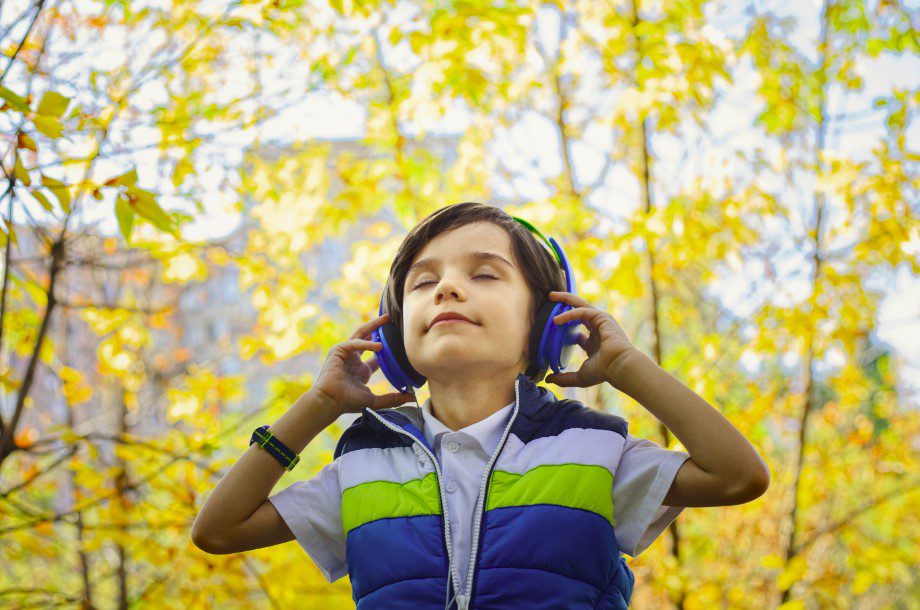In today’s digital age, where information and entertainment are readily available, the exposure of children to explicit music lyrics has become a subject of concern for parents, educators, and researchers alike.
Music has a unique ability to evoke emotions, ignite creativity, and influence thought processes. For children, whose minds are still developing, its impact can be even more profound.
Research has shown that music exposure during early years can have lasting effects on cognitive, emotional, and social development. Hence, it’s crucial to recognize that the content of the music children are exposed to can significantly mold their perceptions and behaviors.
The Negatives and Positives of Explicit Music in Children:

In recent years, explicit music lyrics have become more prevalent in popular culture. These lyrics often contain explicit language, graphic descriptions, and themes that may not be suitable for young audiences. This rise has raised concerns among parents and caregivers about the potential effects of such content on their children.
Here are some potential effects:
Negative Effects:
- Aggressive Behavior: One of the central concerns regarding children’s exposure to explicit music is its potential association with aggressive behavior. Some studies suggest that prolonged exposure to lyrics glorifying violence, substance abuse, or derogatory language can desensitize children to such themes. This may lead to an increased likelihood of adopting similar attitudes and behaviors. The repetition of explicit content may normalize actions that are inappropriate or harmful.
- Sexual Attitudes and Behavior: Explicit sexual content in music lyrics can influence children’s perceptions and attitudes towards sex and relationships. Exposure to sexually explicit lyrics might lead to earlier sexual initiation, risky sexual behaviors, or distorted views of consent and relationships.
- Substance Abuse: Lyrics that glorify drug or alcohol use can make them seem more acceptable to children. This could potentially contribute to the early onset of substance use.
- Negative Self-Image: Explicit lyrics that objectify women or promote unrealistic body images can contribute to negative self-perceptions. In addition, children may develop body dissatisfaction, and low self-esteem, especially among young girls.
- Normalization of Inappropriate Language: Exposure to explicit language can desensitize children to the use of profanity. They can be more likely to use such language themselves.
Positive Effects:
While the potential negative impacts of explicit music lyrics on children’s attitudes and behaviors are widely discussed, it’s important to acknowledge that there can also be certain positive effects, albeit within a nuanced context.
Explicit music lyrics, when approached thoughtfully and responsibly, can offer unique opportunities for growth, self-expression, and critical thinking in children.
Here are some potential positive effects to consider:
- Catharsis and Expression: Explicit lyrics often tap into raw emotions and experiences that resonate with listeners, including children. When children are going through challenging times or trying to make sense of their emotions, these lyrics can provide a sense of validation and catharsis. Feeling understood by artists who express similar feelings can contribute to a sense of connection.
- Identity and Empowerment: Certain explicit songs might resonate with children who feel marginalized or misunderstood; providing them with a sense of identity and empowerment.
- Exploration of Complex Themes: Explicit music lyrics often delve into complex social, psychological, and philosophical themes. Engaging with these lyrics can encourage children to ponder abstract concepts, challenge assumptions, and develop a deeper understanding of human nature.
- Enhanced Language and Literary Skills: Explicit lyrics, often rich in metaphor and symbolism, can contribute to the development of children’s language and literary skills. As children engage with the intricate wordplay and storytelling in these lyrics, their vocabulary and comprehension abilities can improve.
- Exposure to Diverse Cultural Perspectives: Explicit lyrics can sometimes touch on important social and cultural issues. They also reflect the diversity of human experiences and viewpoints. By exposing children to lyrics that discuss different cultures, social issues, and personal narratives, parents and educators can broaden their horizons and encourage empathy. This exposure can help children develop a more inclusive worldview and foster an appreciation for the richness of human diversity.
How to Foster a Positive Musical Environment

It’s important to recognize that children are not passive recipients of media but active interpreters who engage with music in their own ways. Parents, guardians, and educators can play a crucial role in helping children navigate the content they are exposed to:
- Open Communication: Encourage open conversations about music and lyrics, addressing the themes and messages in an age-appropriate manner.
- Media Literacy: Teach children critical thinking skills to help them analyze and understand the messages conveyed in music lyrics.
- Setting Boundaries: Establish guidelines for age-appropriate content and monitor what children are listening to, especially when they are younger.
- Alternative Choices: Introduce children to a variety of music genres that contain positive and uplifting messages.
- Positive Role Models: Highlight artists who create explicit content responsibly and promote positive messages alongside their explicit lyrics.
Exploring age-appropriate music genres that emphasize positive messages, creativity, and skillful wordplay can help counterbalance the influence of explicit lyrics. Engaging children in discussions about the meaning behind lyrics can promote analytical thinking and encourage them to make informed choices.
In Addition …
Instead of solely focusing on the negative aspects, parents can take proactive steps to foster a positive musical environment for their children.
Educational institutions also have a vital role in addressing the impact of explicit music on children. Incorporating media literacy into the curriculum can equip students with the tools to critically evaluate music content and its implications.
Additionally, hosting workshops and discussions about the effects of media on attitudes and behaviors can raise awareness and encourage responsible consumption.





Leave a Reply